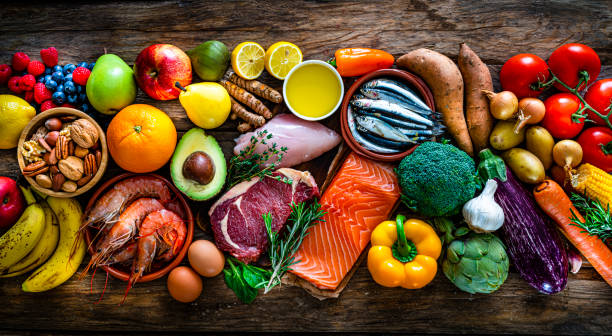
FAQ About Paleo Diet
Are there any restrictions on the types of fats and oils I can use?
On the Paleo diet, there are certain guidelines and recommendations regarding the types of fats and oils that are encouraged or restricted. Here are some considerations:
Healthy fats: The Paleo diet emphasizes the consumption of healthy fats. These include:
- Avocado oil: It is rich in monounsaturated fats and has a high smoke point, making it suitable for cooking and frying.
- Olive oil: Extra virgin olive oil is a staple in the Mediterranean diet and is rich in monounsaturated fats. It's best used for dressings and low-heat cooking.
- Coconut oil: This oil is high in saturated fats, primarily medium-chain triglycerides (MCTs), which can be quickly converted into energy. It's suitable for cooking at higher temperatures.
- Ghee (clarified butter): Ghee is butter that has had the milk solids removed, leaving behind pure butterfat. It has a high smoke point and adds a rich flavor to dishes.
- Animal fats: Fats derived from animals, such as tallow (beef fat) and lard (pig fat), can be used for cooking. Choose high-quality, grass-fed or pasture-raised animal fats when available.
- Nut and seed oils: Small amounts of cold-pressed nut and seed oils like walnut oil, macadamia nut oil, and flaxseed oil can be used for flavoring in salads or drizzling, but they should not be used for high-heat cooking due to their delicate nature.
Avoidance of processed and hydrogenated oils: The Paleo diet discourages the consumption of processed and hydrogenated oils, which include vegetable oils like soybean oil, corn oil, sunflower oil, and canola oil. These oils are high in omega-6 fatty acids and can contribute to an imbalanced omega-6 to omega-3 ratio in the diet, potentially promoting inflammation.
Moderation with saturated fats: While the Paleo diet does allow for the consumption of saturated fats from natural sources like coconut oil and animal fats, it's generally recommended to consume them in moderation and prioritize a balance of different types of fats.
It's important to note that individual dietary needs and preferences may vary. If you have specific health conditions or concerns, it's advisable to consult with a registered dietitian or a healthcare professional who can provide personalized guidance based on your unique circumstances.
